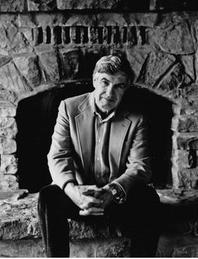 |
|
| Neil Sheehan (photo: Ron Blunt) |
|
Neil Sheehan, best known for helping to publish a secret government history of the Vietnam War and for his own history of the war, died on January 7. He was 84. Those works were the Pentagon Papers, the internal Defense Department history of the war that revealed the government's duplicity about the war, and A Bright Shining Lie: John Paul Vann and America in Vietnam, which won a National Book Award and a Pulitzer Prize in 1989.
As the New York Times recalled, Sheehan covered the Vietnam War from 1962 to 1966 for United Press International and the Times. "Intense and driven, Mr. Sheehan arrived in Vietnam at age 25, a believer in the American mission," the newspaper wrote. "He left, four years later, disillusioned and anguished."
In 1966, he wrote in the New York Times Magazine: "I simply cannot help worrying that, in the process of waging this war, we are corrupting ourselves. I wonder, when I look at the bombed-out peasant hamlets, the orphans begging and stealing on the streets of Saigon and the women and children with napalm burns lying on the hospital cots, whether the United States or any nation has the right to inflict this suffering and degradation on another people for its own ends."
In 1971, Sheehan was approached by Daniel Ellsberg, the former Defense Department analyst who had turned against the war and worked on the Pentagon Papers, the secret government history of the war that showed the U.S. leaders of the war had doubts about it from the beginning and misled the American public.
As was revealed only after Sheehan's death, Ellsberg was so conflicted about releasing the Pentagon Papers that Sheehan and his wife, Susan Sheehan, copied the material without Ellsberg realizing it--Ellsberg had given Sheehan permission only to read the documents. Once copies were made, Sheehan and a team at the Times began analyzing the 7,000 pages, which was "the largest disclosure of classified documents in American history up to that point."
After the Times began publishing the Pentagon Papers and its analysis, the Nixon administration obtained a temporary injunction blocking further publication. Seventeen days later, the Supreme Court ruled to allow publication to resume, which was taken "as a statement that prior restraint on freedom of the press is rarely justified," the Times wrote. The Times won a Pulitzer for public service for its coverage.
The following year, Sheehan took a book leave from the Times to write A Bright Shining Lie, centered on John Paul Vann, "a charismatic, idealistic former Army officer and outspoken dissenter on the war, whom Mr. Sheehan had known in Vietnam," the Times recounted. The book took 16 years to write.
Sheehan wrote several other books, including After the War Was Over: Hanoi and Saigon, based on a trip to Vietnam in 1989, and A Fiery Peace in a Cold War: Bernard Schriever and the Ultimate Weapon (2009), a history of the arms race and the story of the Air Force general responsible for the creation of the U.S. intercontinental ballistic missile system.

